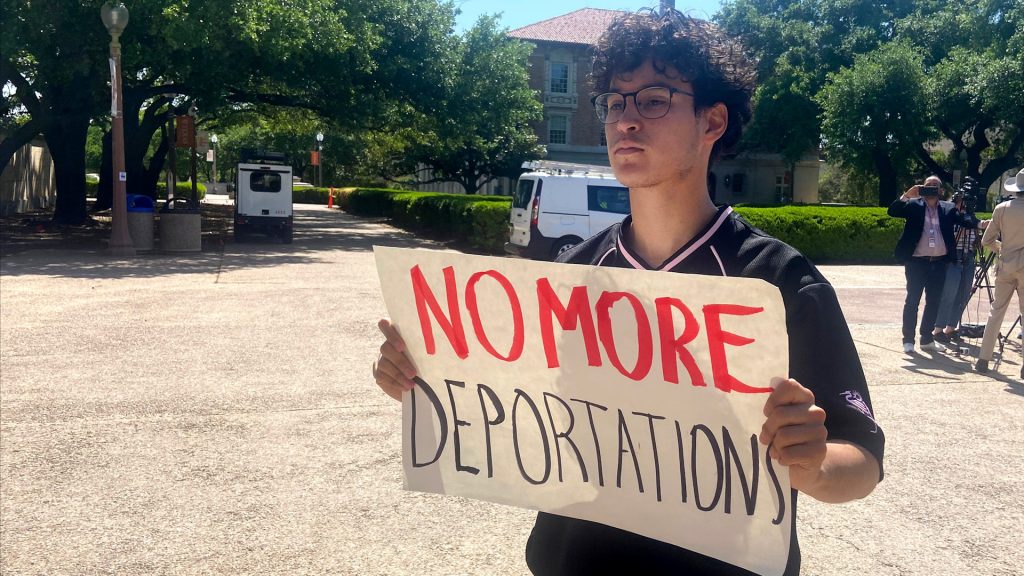New government policy for revoking international students’ legal status

The Trump administration updated its immigration policy to allow visa revocations to trigger immediate termination of international students’ legal status in the U.S. A newly released internal memo from Immigration and Customs Enforcement confirmed that Student and Exchange Visitor Program personnel may now terminate Student and Exchange Visitor Information System records if the State Department revokes a student’s visa.
The memo shows that a visa revocation alone can now be enough for ICE to cancel a student’s SEVIS record and start deportation proceedings. Until now, losing a visa didn’t automatically mean losing legal status inside the U.S.
Unbiased. Straight Facts.TM
SEVIS is a Homeland Security system monitoring the legal status of international students in the U.S., tracking school enrollment and visa compliance and allowing ICE to flag violations that may lead to deportation.
SEVP now lists several grounds for termination, including failure to report employment while on Optional Practical Training, exceeding unemployment limits, withdrawal from school and failure to comply with visa terms.
What legal challenges followed?
More than 200 students filed lawsuits or secured court orders to block the terminations. Judges in several states, including Massachusetts and the District of Columbia, issued temporary restraining orders to block immigration enforcement while the legal battles played out.
In one case, a federal judge in Boston extended a protection order that stopped officials from detaining a Boston University student whose SEVIS record had been canceled.
At the same time, the Department of Justice acknowledged in court filings that SEVIS reinstatements would apply to plaintiffs as well as to other affected students.
How did ICE respond to legal pressure?
Under scrutiny from federal courts, ICE confirmed the release of a new policy outlining specific criteria for terminating student records. A copy reviewed by Bloomberg Law indicates that ICE still retains broad discretion. The updated policy allows record termination for visa revocations, status changes and school withdrawals.
Government attorneys have argued in multiple lawsuits that terminating a student’s SEVIS record does not necessarily impact their lawful status in the U.S., according to Bloomberg Law. Attorneys representing students have challenged that claim, citing Department of Homeland Security (DHS) guidance and noting that terminations often lead to the loss of work authorization and the inability to change visa categories.
Are the reinstated students safe from future enforcement?
ICE has reinstated access to SEVIS for students for whom the administration did not formally revoke visas and paused enforcement while it finalizes the new framework. However, litigation continues.
Plaintiffs argue that the administration acted without due process and terminated records based on minor infractions or political expression. The American Civil Liberties Union and other advocacy groups represent students in cases now moving through federal courts.
What broader concerns are being raised?
University officials and immigration advocates warned the policy shift could discourage international enrollment and undermine academic freedom. The American Immigration Lawyers Association said the Trump administration has removed over 4,700 records since the president took office in January.
Faculty groups, including the University Council AFT and University of California faculty associations, have urged schools to protect affected students by allowing remote instruction and continuing financial support.
DHS has not commented on the new policy, and several government attorneys admitted in court that they had not yet reviewed the updated guidance. Meanwhile, students across the country await final rulings on their legal status as the administration moves to formalize the rules governing SEVIS terminations.





